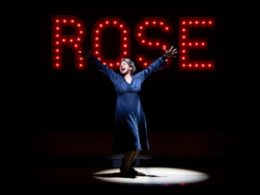On August 21, Noel Polk, professor, literary scholar, critic, and poet, died at his home in Jackson, Mississippi. Emeritus Professor of English at Mississippi State University and editor of the Mississippi Quarterly, Polk was best known for his editorial and critical work on William Faulkner and his critical work on Eudora Welty. The five volumes of Faulkner’s novels he co-edited with Faulkner biographer Joseph Blotner for The Library of America involved painstaking research to reconstruct the most authoritative text for each novel, a process he described in the Notes on the Texts for each volume:
The Polk texts attempt to reproduce Faulkner’s typescripts as he presented them to his publishers before editorial intervention. They accept only those revisions on typescript or proof that Faulkner seems to have initiated himself as a response to his own text, not those he made in response to a revision or a correction suggested by an editor; this is a very conservative policy which rejects many of Faulkner’s proof revisions in favor of his original typescript.
Reconstructing Faulkner’s novels as he originally intended posed numerous problems for Polk, as he recounted in his introduction to his collection of essays, Children of the Dark House: Text and Context in Faulkner:
[Faulkner] took almost no interest in the printed forms of his books: he occasionally fought losing battles with editors over their alterations, but he never restored his original intentions back to what had been editorially altered. And he never revised a novel after it was published; for all we know, he never even re-read his novels (except, of course, those passages he read in public). For all intents and purposes, when he gave a typescript to his publishers he lost interest in it and proceeded immediately to the next blank page; what proofing he did he did with some obeisance to his professional duty, but he took no pleasure or interest in these more mechanical stages of literary production.
Polk opens his essay “Where the Comma Goes: Editing William Faulkner,” with an eloquent brief for the role of the scholarly editor:
Scholarly editing is the ultimate act of criticism, because it involves a wider range of issues than interpretation alone does, from macrocosmic ones like the author’s meaning, to more mundane and microcosmic ones like where does the comma go? Dealing with all these issues responsibly requires extensive knowledge of publishing history and of publishing techniques and procedures, of standard usage in the author’s period, of the author’s preferences at any period of his or her career, of the author’s relationship to commercial editors, to financial considerations, and to the political and cultural times, and of the author’s practices in composing, revising, and proofreading. The editor must be sensitive to an author’s most subtle nuances of style, punctuation, and spelling, as well as to larger issues in the work, but also constantly aware of the complex interaction between his or her own aesthetic sense and the author’s, because in order to determine where the comma goes the editor must constantly differentiate between authorial error and authorial intention. Finally, the editorial act is central to the critical enterprise because editorial decisions impinge directly upon questions of canon and literary history.
Polk’s essays detail the seriousness and care with which he tackled his research—“untold hours trying to parse out fine Faulknerian distinctions between ‘diningroom,’ ‘dining room,’ and ‘dining-room.’ It’s not all fun.”—but they also include transporting passages about his delight in discovery:
Few things in my scholarly life have given me the kind of personal pleasure that I got from showing the manuscripts of The Sound and the Fury to a friend late one cluttered Friday afternoon at the Alderman Library. You who have held it know that it is, simply, gorgeous. It and the manuscripts of Sanctuary, As I Lay Dying, and Absalom, Absalom!, are almost objets d’arts, each individual page a canvas sensual to the fingers and pleasing to the eye: rule-straight lines of highly stylized handwriting forming a visual counterpoint to the scope and power, the psychological chaos, of the world the handwriting is creating. The pages thus speak eloquently of a shoring up against that chaos, of compression, of control.
Polk had long wished to realize Faulkner’s dream of publishing a version of The Sound and the Fury which used colored ink to represent the time shifts in the sometimes bewildering opening Benjy section. Last month the Folio Society published a limited edition of The Sound and the Fury that Polk co-edited with Stephen Ross that uses fourteen different inks to mark each time period.



